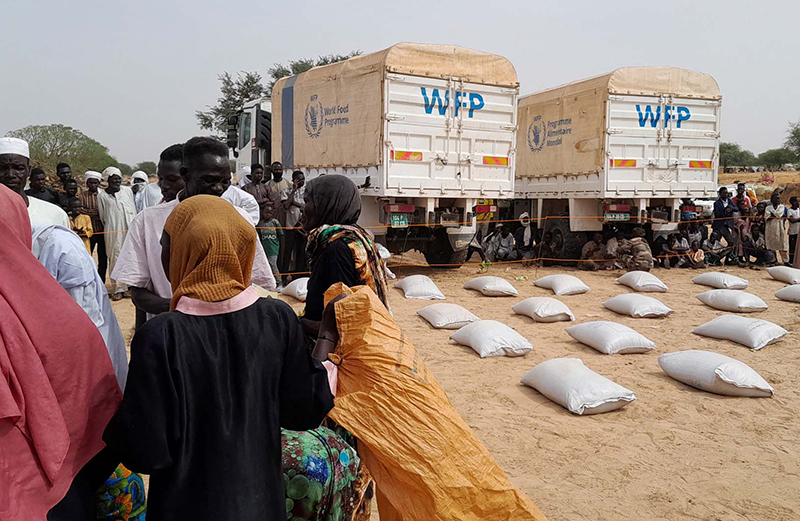- World & Africa
- No Comment
Over half of Sudan’s population needs humanitarian aid after nearly 7 months of war, UN says

By Associated Press
UNITED NATIONS: Almost seven months of war between Sudan’s military and a powerful paramilitary group have left a wave of destruction with over half the population in need of humanitarian aid and raised fears of a repeat of the deadly ethnic conflict in Darfur 20 years ago.
“What is happening is verging on pure evil,” the United Nations humanitarian coordinator in the African nation said Friday.
Sudan has fallen out of the spotlight since it was engulfed in chaos starting in mid-April, when simmering tensions between military chief Gen. Abdel-Fattah Burhan and the commander of the paramilitary Rapid Support Forces, Gen. Mohamed Hamdan Dagalo, exploded into open warfare.
But Clementine Nkweta-Salami, the resident U.N. humanitarian coordinator for Sudan, told a United Nations news conference that “the situation is horrific and grim” and “frankly, we are running out of words to describe the horror of what is happening.” She stressed that “the Sudan crisis has few equals.”
Fighting is continuing to rage despite the warring parties signing a statement after peace talks in Jeddah, Saudi Arabia, pledging to protect civilians and provide unimpeded humanitarian access to the 25 million people who require assistance, she said. The warring generals made a commitment to establish a Humanitarian Forum, with U.N. participation, Nkweta-Salami said. And after its launch on Monday, the U.N. hopes that their commitments in Jeddah will be implemented.
She said the decimated health sector — with more than 70% of health facilities in conflict areas out of service — was extremely worrying giving outbreaks of cholera, dengue, malaria and measles; reports of escalating violence against civilians; and fighting spreading to Sudan’s breadbasket.
“What we see is rising hunger,” the humanitarian coordinator said, and high levels of malnutrition among children.
The U.N. is targeting about 12 million people for aid — about half those in need. But its appeal for $2.6 billion for the 2023 humanitarian response in Sudan is just over a third funded, and Nkweta-Salami urged donors to provide additional money.
She stressed that access to things like hotspots along with protection of civilians are key challenges.
Nkweta-Salami was asked about her comment that “what is happening is verging on pure evil,” and whether she was worried that ethnic-based violence in Sudan’s vast western Darfur region would lead to a repetition of the conflict there in 2003.
It began when rebels from Darfur’s ethnic central and sub-Saharan African community launched an insurgency, complaining of oppression by the Arab-dominated government in the capital, Khartoum.
The government responded with a scorched-earth campaign of aerial bombings and unleashed militias known as the Janjaweed, who are accused of mass killings and rapes. Some 300,000 people died in the Darfur conflict, 2.7 million were driven from their homes, and Darfur became synonymous with genocide and war crimes, particularly by the Janjaweed.
Nkweta-Salami said the U.N. is very worried about fighting in Darfur today and continues to raise the alarm and engage the warring parties to uphold their obligations under international humanitarian law to protect civilians.
“We will continue to hope that we don’t find ourselves treading down the same path,” she said.
